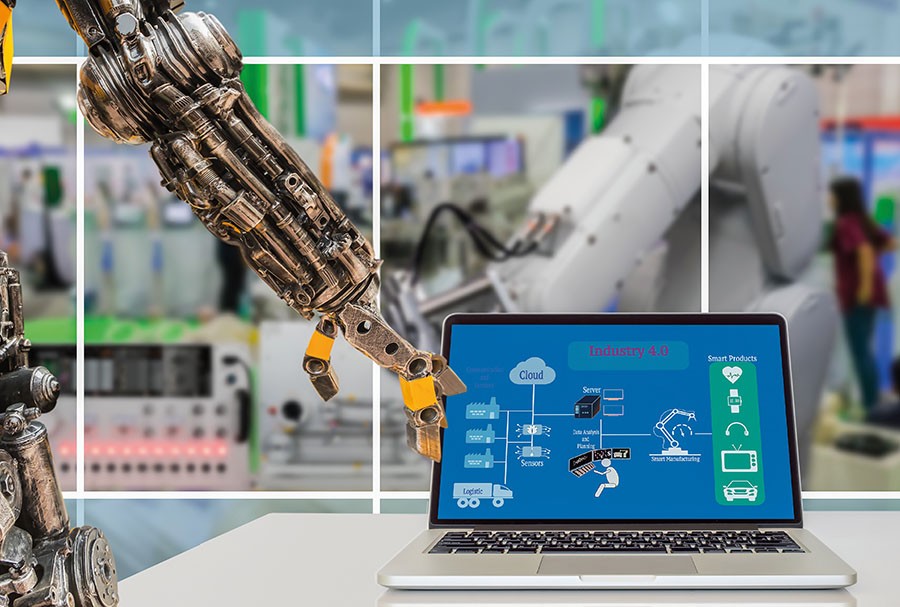
Master of Technology (M.Tech) in Computer Integrated Manufacturing (CIM)
The M.Tech in Computer Integrated Manufacturing (CIM) is a specialized postgraduate program focused on integrating computer-based tools in manufacturing processes. It covers advanced manufacturing techniques, automation, robotics, and data-driven decision-making to improve productivity, efficiency, and product quality. CIM bridges the gap between design and production using computer technologies such as CAD (Computer-Aided Design), CAM (Computer-Aided Manufacturing), robotics, and automation.
1. Program Overview
The M.Tech in CIM is designed to equip students with expertise in modern manufacturing technologies and their integration with information systems.
- Duration: 2 years (Full-time)
- Mode: Full-time, Part-time, or Online (limited options)
- Credit Requirements: Typically 60–70 credits
2. Key Objectives
The program focuses on the following areas:
- Automation and Robotics: Mastering the use of robots and automated systems in manufacturing.
- Advanced Manufacturing Techniques: Implementing CNC machining, 3D printing, and other modern manufacturing methods.
- Integration of CAD/CAM Systems: Ensuring seamless data flow between design and manufacturing processes.
- Manufacturing Process Optimization: Using simulation, modeling, and optimization techniques for process improvement.
- Intelligent Manufacturing: Incorporating AI, IoT, and data analytics into smart factories.
3. Core Curriculum
The M.Tech in CIM includes a blend of core courses, electives, and project work.
Core Courses
-
Computer-Aided Design (CAD)
- Basics of CAD systems, geometric modeling, and 3D design tools like SolidWorks, CATIA.
-
Computer-Aided Manufacturing (CAM)
- CNC programming, machining simulations, and CAM software such as Mastercam.
-
Robotics and Automation
- Kinematics, control systems, industrial robots, and robotic programming.
-
Manufacturing Systems Engineering
- Design and analysis of manufacturing systems, flexible manufacturing systems (FMS).
-
Production Planning and Control
- Material requirement planning (MRP), Just-In-Time (JIT) systems, and scheduling.
-
Simulation and Modeling of Manufacturing Systems
- Use of simulation tools for process modeling and performance evaluation.
-
Advanced CNC Technology
- Multi-axis machining, G-code/M-code programming, and CNC automation.
-
Artificial Intelligence in Manufacturing
- AI and machine learning applications in predictive maintenance and process optimization.
-
Supply Chain Management and Logistics
- Integration of CIM with supply chain systems for enhanced efficiency.
Elective Courses
- Additive Manufacturing (3D Printing)
- Industrial IoT (IIoT) in Manufacturing
- Digital Twin Technology
- Lean Manufacturing and Six Sigma
- Sustainable Manufacturing
- Data Analytics in Manufacturing
4. Capstone Project/Thesis
A capstone project or thesis is a crucial component, allowing students to apply their knowledge to solve real-world manufacturing problems. Examples include:
- Developing an integrated robotic assembly line.
- Optimizing CNC machining parameters for high-precision components.
- Implementing a digital twin for a smart manufacturing process.
- Designing a sustainable, automated production system.
5. Laboratory and Practical Training
Students receive hands-on experience in:
- CAD/CAM Labs: Working with software like AutoCAD, CATIA, Siemens NX, Mastercam.
- Robotics Labs: Programming and operating industrial robots like ABB, FANUC, or KUKA.
- CNC Labs: Operating CNC lathes and milling machines.
- Simulation Labs: Using simulation software like MATLAB, Arena, or Simul8.
6. Admission Requirements
Admission criteria vary but typically include:
-
Educational Background
- B.E./B.Tech in Mechanical Engineering, Production Engineering, Industrial Engineering, or related fields.
-
GPA Requirement
- Minimum CGPA of 6.5/10 or equivalent.
-
Entrance Exam
- India: GATE (Graduate Aptitude Test in Engineering) score is often required.
- International: GRE scores may be required for global universities.
-
Language Proficiency
- TOEFL/IELTS for non-native English speakers.
7. Career Opportunities
Graduates with an M.Tech in CIM have a wide range of career options in manufacturing, automation, and related industries.
Job Roles
- Manufacturing Engineer
- CIM Engineer
- Robotics Engineer
- Automation Engineer
- CNC Programmer/Engineer
- Production Planning Engineer
- Industrial Automation Specialist
- Research and Development Engineer
Industries
- Automotive Industry
- Aerospace and Defense
- Consumer Electronics
- Robotics and Automation Companies
- Medical Device Manufacturing
- Oil and Gas Industry
Average Salary
- Entry-Level: $50,000 – $70,000 (USD)
- Mid-Level: $70,000 – $100,000
- Senior-Level: $100,000 – $150,000 (varies by region and industry)
8. Top Universities Offering M.Tech in CIM
India
- Indian Institutes of Technology (IITs)
- National Institutes of Technology (NITs)
- Vellore Institute of Technology (VIT)
- Birla Institute of Technology and Science (BITS Pilani)
Global
- Massachusetts Institute of Technology (MIT) (USA)
- Stanford University (USA)
- RWTH Aachen University (Germany)
- University of Cambridge (UK)
- National University of Singapore (NUS)
9. Research Areas and Emerging Trends
- Smart Manufacturing and Industry 4.0: Integration of IoT, AI, and big data in manufacturing processes.
- Digital Twin Technology: Real-time monitoring and optimization of manufacturing processes using digital twins.
- Sustainable and Green Manufacturing: Focus on eco-friendly and energy-efficient production techniques.
- Collaborative Robots (Cobots): Using robots that can work safely alongside humans in manufacturing environments.
- Cyber-Physical Systems: Integrating physical manufacturing processes with digital controls for real-time monitoring.
10. Accreditation and Industry Recognition
Ensure the program is accredited by relevant bodies:
- ABET Accreditation for engineering and technology programs.
- AICTE (All India Council for Technical Education) for Indian institutions.
- Regional Accreditation Bodies for universities worldwide.
